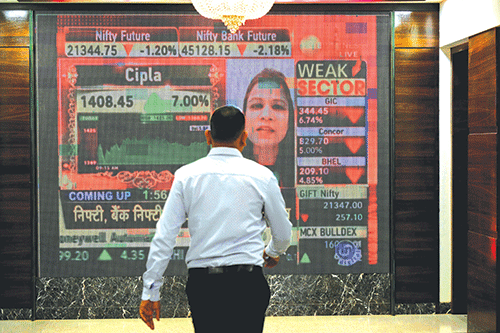After surviving near bankruptcy in the early 90s when the Treasury could not honour its financial obligations, more than 30 years later, the Indian economy has grown from strength to strength.
India has now reclaimed the fifth position as the world’s most preferred destination for global CEOs. India is also the fifth largest economy and fastest growing economy in the world.
What is more, 86% of India’s CEOs agree that its economy will record further growth over the next 12 months, according to PwC’s 27th Annual Global CEO Survey, which polled 4 702 CEOs in 105 countries and territories, including 79 from India.
There is a general convergence between India’s economic growth and its political leadership, many experts and politicians opine.
During a recent visit to the Asian economic powerhouse by African journalists from 15 countries, including Namibia, India’s foremost diplomat, External Affairs Minister Subrahmanyam Jaishankar was also in agreement with the narrative being propelled by many.
“The reason for this phenomenal growth is the consumption boom brought about by our population [and] good governance and a well-coordinated approach [which] have moved us to where we are now,” Jaishankar told the African delegation while on their familiarisation visit.
His sentiments also reverberated through a panel consisting of several experts from the University of Hyderabad when the journalists visited the institution.
“Democracy has worked well. The political leadership has allowed people to think freely. The political leadership has been sensitive to the needs of the people. On the political, social, and economic level, India believes in the philosophy of ‘one family, one world’, which forms the basis of partnership, whether domestic, regional, or international,” one of the panellists said.
With a population of 1.4 billion, India is well on course to overtake Japan and Germany to become the world’s third-largest economy in the world by 2027.
Just between 2011 and 2015, close to 100 million people in India were unchained from the yoke of abject poverty, thanks in part to robust economic growth and a social safety net catering for 800 million people that have improved the overall living standards.
The Indian economy is primarily driven by its world-class pharmaceutical industry, as well as billions derived from car sales, motorcycles, tools, tractors, machinery, and forged steel.
India is also the world’s largest producer of fruit and is a major exporter of information technology services, outsourcing services, and software workers.
The country’s digital strategy over the past decade is also said to have eased doing business and the delivery of public goods and services at an industrial scale.
Numbers
Now, a PwC survey indicates that there is no stopping for India, at least not soon.
The survey reflects confidence, spotlighting the fact that Indian leaders’ optimism about their country’s economic growth has seen a nearly 30% increase over the last year.
While global leaders are hopeful about the future too, they are still somewhat cautious in their predictions for the year, with 44% of global CEOs believing the economy would improve in their respective territories.
India’s air of positivity is also being felt across the world.
The CEO Survey shows that India has reclaimed the fifth position as an investment destination for global CEOs, up from the ninth position it held in 2023.
Indian leaders are convinced that their companies are on the right track. When asked how confident they were about their companies’ growth over the next 12 months, 62% of Indian CEOs said they were ‘extremely or very confident’, as against 37% of global CEOs. About 70% of India CEOs as against 49% of global CEOs said they were confident of their companies’ prospects for revenue growth over the next three years.
While most Indian CEOs are confident about the future, a sizable section is concerned about the need to embrace change to keep pace with future trends. While 59% of Indian CEOs as against 53% of global CEOs said their companies would remain economically viable for more than 10 years if they continued on their current trajectory, 38% said their companies would remain economically viable for less than 10 years in this scenario.
India CEOs saw inflation and cyber risks as the biggest threats to their businesses in the short term (12-month period).
While at that, India’s annual retail inflation hit a 15-month high of 7.44% in July 2023 but had cooled to around 5.5% in November 2023.
The perceived risk from cyber threats saw a jump of 10% from last year, with 28% of Indian CEOs as against 18% last year expecting extreme/high exposure to it.
Health threats also figure high on the India CEOs’ list, with 27% saying they expected their companies to be extremely and highly exposed to these over the next 12 months.
The health concern is evident with employees actively seeking employers who offer generous health insurance for their families.
More so, Indian CEOs’ responses on climate change issues in the 2024 survey show a keen awareness of the urgency to speed up climate action, but they recognise that it is still a work in progress.
While just 8% said they had completed projects to improve energy efficiency and reduce consumption, 82% said it was in progress, and only 4% said they had no plans.
India CEOs furthermore reported progress on decarbonisation, climate adaptation, reskilling the workforce and investments in nature-based climate solutions.
But they also said regulatory complexity (50%), lack of climate-friendly technologies (49%), lack of demand from external stakeholders (44%), and lower returns on climate-friendly investments (48%) were inhibiting Indian companies’ ability to decarbonise to a moderate and large/very large extent. - Additional reporting by PwC
-emumbuu@nepc.com.na


